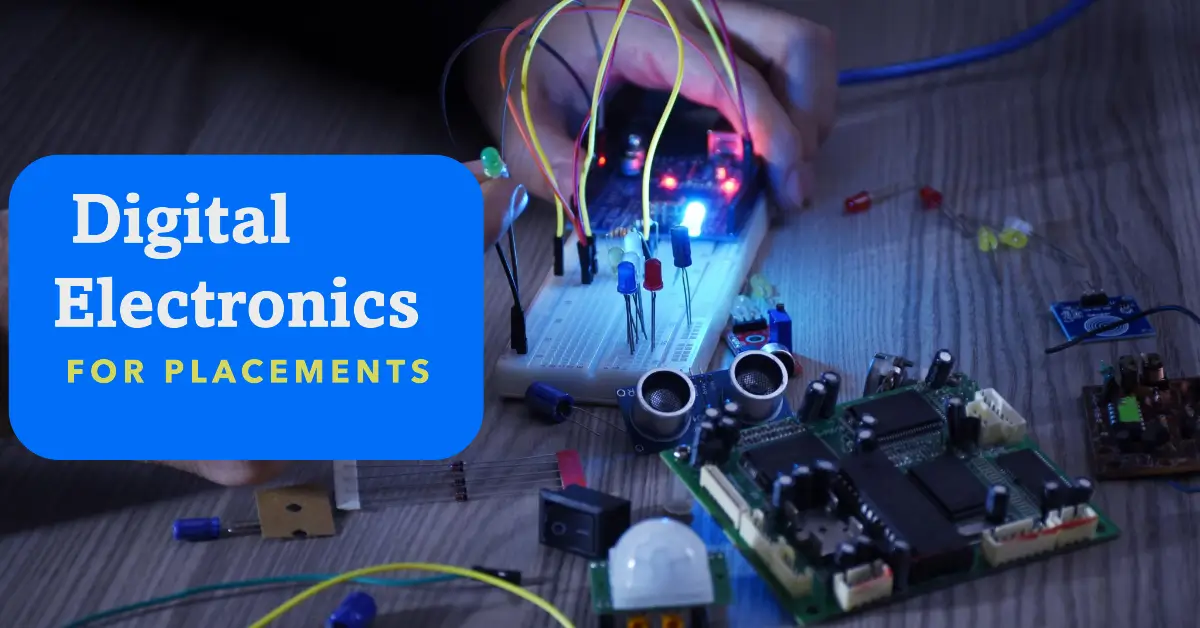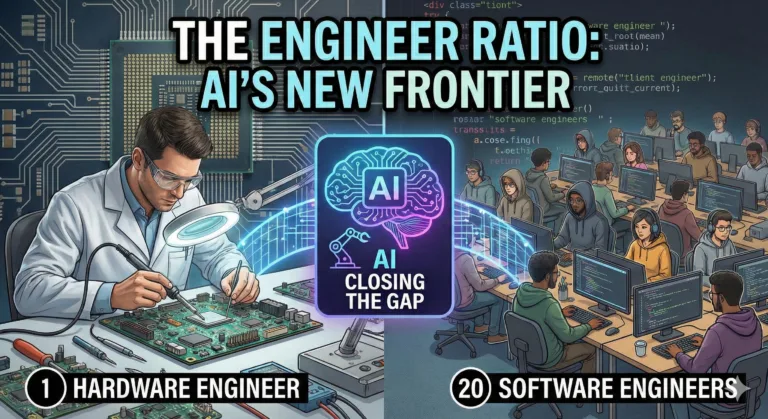Introduction
Digital electronics is a subject that most undergraduates enjoy due to its technical nature and, as time progresses, its simplicity. Any student pursuing a career in electronics must have a strong foundation in this subject for their placement.
Digital Electronics – A Breakdown
The subject of digital electronics is typically taught in the 3rd or 4th semester of a BTech program. It deals with the representation of analog circuits in digital form so they can be used to create complex circuits. The subject is divided into various subparts:
- Number Systems: Deals with the representation of numbers in binary, hexadecimal, decimal, and octal, and their interconversion.
- Boolean Algebra and Logic Gates: Involves basic logic gates and AND/OR/NOT (Boolean) operations.
- Combinational Circuits: Involves creating circuits using logic gates.
- Sequential Circuits: Combinational circuits that store and process information step by step.
- Finite State Machines [very important]: Implementation of sequential circuits to create real-world circuits, e.g., sequence detectors.
- Logic Families: Deals with the analog implementation of digital circuits.
While studying digital electronics, one must thoroughly understand each of these sub-modules to grasp the subject.
Digital Electronics topics for placements
Below are important topics in each of the sub-modules discussed above:
- Number Systems: 1’s complement, 2’s complement, Gray code.
- Boolean Algebra and Logic Gates: XOR gate, XNOR gate, Boolean formulas (De Morgan’s law, K-map).
- Combinational Circuits: Multiplexers, encoders, half adder, and full adder.
- Sequential Circuits: Working of latches, interconversion of flip-flops, Mod N counters as frequency dividers.
- Finite State Machines: Sequence detectors, truth table method of problem-solving.
- Logic Families: CMOS implementation of logic gates.
It’s essential to cover these topics thoroughly for interviews and a clear understanding of the subject.
Sources to Study for Digital Electronics Placements
YouTube: Any course from a GATE coaching institute would be beneficial.
Digital Electronics (Complete Playlist) – YouTube
Digital Electronics – Neso Academy (for last-minute exam preparation)
For revision: Digital Electronics | GATE/ESE (EE, ECE) 2021 | Sankar Sir – YouTube
Though freely available, it’s recommended to opt for a paid course on digital electronics. Unacademy course by Bhima Sankar Manthina is recommended.
Students can buy unacademy’s one month GATE/ESE subscription and complete the course in due time. Bhima Sir, with 9 years of teaching experience, has now left the coaching industry to pursue his PhD at IIT Hyderabad. His recordings are available.
Pro Tips for Placements
Digital electronics may initially seem lengthy, but it’s shorter compared to other courses when viewed in its entirety.
Students often skip topics like Finite State Machines (FSM) and logic families, but they are crucial. The entire summary of digital electronics funnels into FSM, and knowledge of logic families is essential for projects.
Practice is the only key. You can use GATE previous years questions for practice. But before that make sure you do the DPPs from this drive link.
Some topics may seem irrelevant initially, but everything falls into place as you progress through the subject.
Conclusion
Digital electronics is a rewarding subject if practiced thoroughly. In the industry, it manifests itself in the form of Verilog – a hardware description language.
we cover semiconductor and Electronics. Join to stay updated.
Discover more from WireUnwired Research
Subscribe to get the latest posts sent to your email.





Excellent blog here! Also your web site loads up very fast! What host are you using? Can I get your affiliate link to your host? I wish my web site loaded up as fast as yours lol